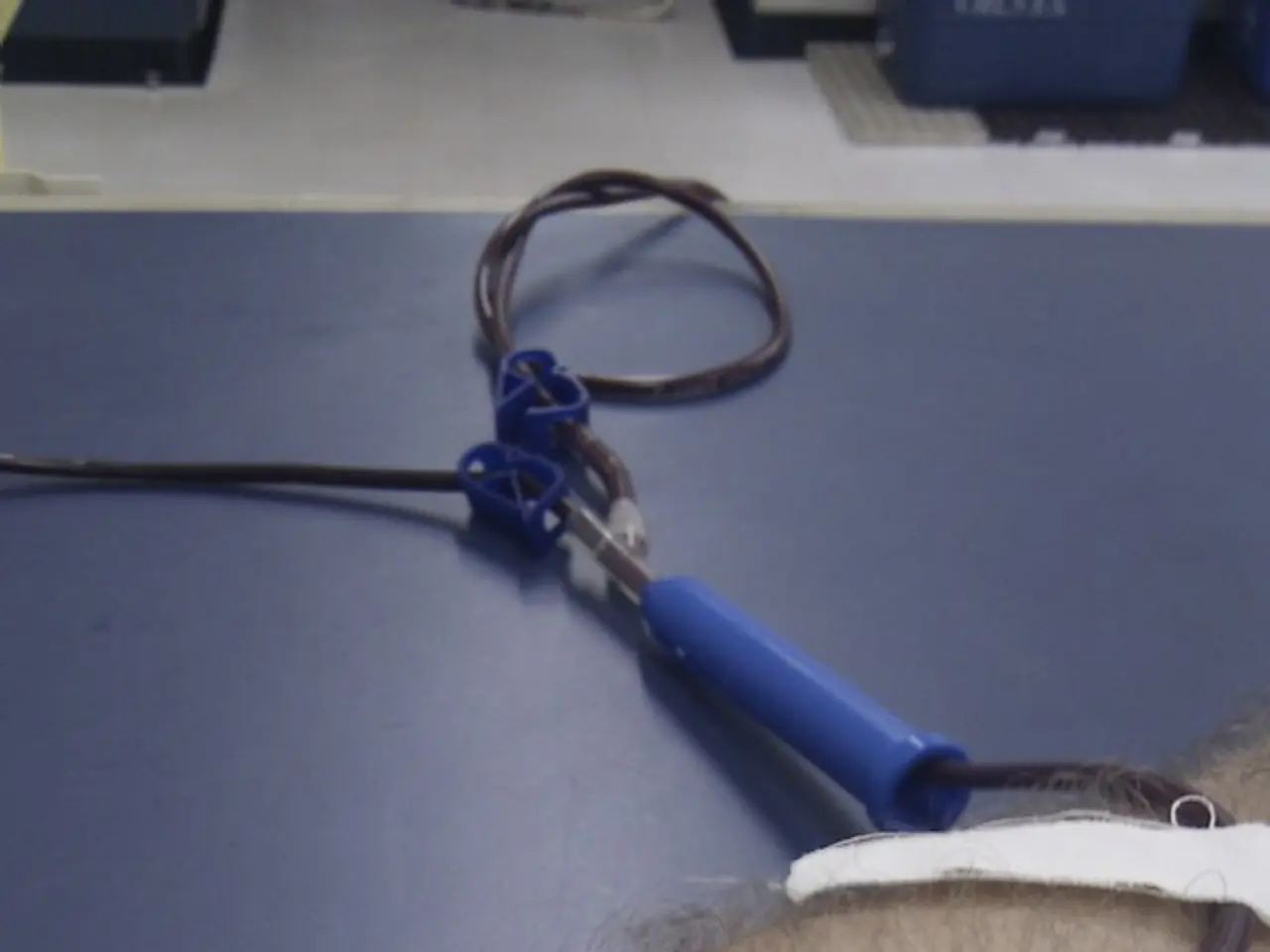Expert from Marien Hospital Herne honored for innovative approaches in geriatric care
In a remarkable case study presented at the 131st Internists' Congress 2025, Elena Bergmann, Assistant Physician at the Clinic for Geriatric Medicine and Early Rehabilitation of Marien Hospital Herne, demonstrated the successful management of a 71-year-old Jehovah's Witness patient with liver cirrhosis and MDS. The presentation, which focused on the unique challenges presented by the patient's dual diagnosis and the need for religious accommodation in their care, was convincing to the jury and earned Bergmann an award by the German Society of Internal Medicine (DGIM).
The patient, who is bedridden due to their conditions, was facing the need for regular blood transfusions due to a lack of functional blood cells. However, the patient's religious beliefs prohibit the acceptance of allogeneic blood transfusions. To address this, a multidisciplinary approach was employed, integrating pharmacologic stimulation of red blood cell production, antifibrinolytic therapy, surgical techniques that conserve blood, and ethical respect for patient autonomy.
The patient's hemoglobin levels were optimised pre-treatment using erythropoiesis-stimulating agents, specifically darbepoetin alfa. During the surgery, tranexamic acid was administered to minimise blood loss, and intraoperative cell salvage techniques were used to recycle the patient's own blood, a practice acceptable to Jehovah's Witnesses.
In addition, iron supplementation was used to further stimulate blood production. The patient's liver cirrhosis and MDS, two of the diseases that constitute the multimorbidity in this case, were effectively managed without traditional allogeneic blood transfusion.
The results were impressive. After a short period, the patient's blood values significantly improved, and long-term, the patient's values and quality of life have also improved significantly without a blood transfusion. Three weeks after the treatment, the patient was mobile again.
This case study underscores the importance of individualised solutions when religious particularities are involved in patient care. It also highlights the feasibility of "bloodless" or transfusion-avoiding hematopoietic stem cell transplantation (HSCT) techniques for conditions like MDS that commonly require transfusions.
Multimorbidity, the simultaneous presence of multiple diseases, is a common challenge in geriatric medicine. This case study serves as a valuable example of how a multidisciplinary approach can lead to successful patient care in such complex cases. The jury at the German Internists' Congress recognised the significance of this work, awarding Bergmann for her poster on multimorbidity and individual challenges in geriatrics using the patient's case.
- The science of medicine often encounters unique challenges when managing patients with multiple chronic diseases, such as liver cirrhosis and MDS, as demonstrated in the 131st Internists' Congress 2025.
- The case study, presented by Elena Bergmann, showcased the successful management of a Jehovah's Witness patient, highlighting the importance of accommodating religious beliefs in patient care.
- The patient's dual diagnosis posed significant challenges, including the need for regular blood transfusions due to a lack of functional blood cells, a practice that contradicts their medical-conditions and religious-beliefs.
- To overcome this issue, a multidisciplinary approach was employed, involving the use of erythropoiesis-stimulating agents, antifibrinolytic therapy, surgical techniques, and ethical considerations for patient-autonomy.
- The patient's hemoglobin levels were optimized using darbepoetin alfa before treatment, and tranexamic acid was administered during surgery to minimize blood loss.
- Intraoperative cell salvage techniques were used to recycle the patient's own blood, making it an acceptable practice within their fitness-and-exercise and lifestyle.
- The success of this approach is evident in the patient's improved blood values and quality of life, without the need for traditional allogeneic blood transfusion.
- This case study underscores the importance of individualised solutions and the feasibility of transfusion-avoiding hematopoietic stem cell transplantation (HSCT) techniques for conditions like MDS that commonly require transfusions.
- The case study serves as a valuable example of how a multidisciplinary approach can lead to success in managing multimorbidity, a common challenge in geriatric medicine.
- The jury at the German Internists' Congress recognized the significance of this work, awarding Bergmann for her poster on multimorbidity and individual challenges in geriatrics using the patient's case.
- This case study also emphasizes the role of nutrition, cardiovascular-health, mental-health, and technology in such complex cases, underscoring the importance of a holistic approach in healthcare that touches upon various industries, including finance, business, personal-finance, education-and-self-development, and sports, such as sports-betting and food-and-drink.




